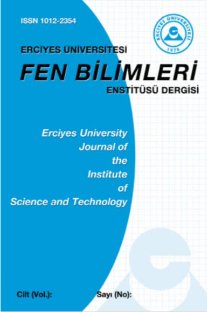Fen ve teknoloji öğretmenlerinin argümantasyon tabanlı bilim öğrenme becerileri
Kritik analitik düşünme, argümantasyon, problem çözme, sorgulama
Prospective science teachers’ argumentation-based science learning skills
Critical and analytical thinking, argumentation, problem solving, inquiry,
___
- Ağargün M. Yücel, Kritik ve Analitik Düşünme Nedir. http://www.kritik-analitik.com/ (2012, Nisan 10) 2. Buçev, Kritik
- Analitik Düşünmenin Basamakları,
- http://bucev.net/kritik-analitik-dusunmenin-basamaklari/, (2013, Haziran 27).
- Dufresne R. J., Gerace W. J., Hardiman P. T., Mestre J. P. Constraining novices to perform expert-like problem analyses: effects on schema acquisition. J. Learn. Sci. 2 1992.
- Günel M., Kabatas-Memis E., Büyükkasap, E., Yaparak yazarak bilim öğrenimi-YYBÖ yaklaşımının ilköğretim öğrencilerinin fen akademik başarısına ve fen dersine yönelik tutumuna etkisi. Eğitim ve Bilim, 35 2010.
- Hand B., Norton-Meier L., Staker J., Bintz, J., Negotiating science: The critical role of argument in student Heinemann. 2009. 5-10. Portsmouth, NH:
- Hsu L., Brewe E., Foster T. M., Harper K. A., Resource letter RPS-1: research in problem solving. Am. J. Phys. 72 2004.
- Jonassen D. H., Learning to Solve Problems: An Instructional Design Guide (Hoboken, NJ: Pfeiffer). 2004.
- Larkin J, McDermott J, Simon D and Simon H., Expert and novice performance in solving physics problems Science 208 1980.
- Leonard, W. J., Dufresne, R. J. and Mestre J. P., Using qualitative strategies to highlight the role of conceptual knowledge in solving problems Am. J. Phys. 64 1996.
- Kim E and Pak S J Students do not overcome conceptual difficulties after solving 1000 traditional problems Am. J. Phys. 70 2001.
- Maloney D. P., Research on problem solving: physics Handbook of Research on Science Teaching and Learning. Ed. D. L. Gabel, New York: Macmillan. 1994.
- Mullis, I. V. S., Martin, M. O., Foy, P., & Arora, A., TIMSS 2011 international results in Science. 2012.
- Paul, R., Elder, L., Critical Thinking (Prentice Hall), Concise Edition, 10 2005.
- Prenzel, M. (Ed.). PISA 2003. Waxmann Verlag. 2004.
- Örnek F. Models in Science Education: Applications of Models in Learning and Teaching Science. International Journal of Environmental & Science Education. 3 2008.
- Reif F., Larkin J. H., Brackett G. C. Teaching general learning and problem-solving skills. Am. J. Phys. 44 1976.
- Reif F., Heller J. I. Knowledge structure and problem solving in physics. Educ. Psychol. 17 1982.
- Ruskin, Anglia Ruskin Üniversitesi Tarafından Üniversite Öğrencileri için Hazırlanmış Rapor. http://www.kritik- analitik.com/ (2012, Nisan 10).
- Smith M. U. Toward a Unified Theory of Problem Solving: Views from the Content Domains. Hillsdale, NJ: Erlbaum. 1991.
- Van Heuvelen A. Learning to think like a physicist: a review of research-based instructional strategies. Am. J. Phys. 59 1991.
- ISSN: 1012-2354
- Yayın Aralığı: Yılda 3 Sayı
- Başlangıç: 1985
- Yayıncı: Erciyes Üniversitesi
Pamuklu kumaşa çinko klorür uygulamasının renk performası üzerine etkisi
Mustafa TUTAK, Bayram SIDAR, Serkan ŞAHAN
Ihlara vadisinin (aksaray) kuşları
Fen ve teknoloji öğretmenlerinin argümantasyon tabanlı bilim öğrenme becerileri
İshak Afşin KARİPER, Bayram AKARSU, Josip SLISKO, Adrian CORONA, Jelena RADOVANOVİC
Çift camlı pencerede ısı transferinin sayısal olarak incelenmesi
Evrim ÖZRAHAT, Sebahattin ÜNALAN
Uzaktan eğitime yönelik anlamsal soru cevap sistemi
Abdullah Talha KABAKUŞ, Aydın ÇETİN
Animasyon Tabanlı PLC ve Operatör Panel Eğitim Seti
Murat AYAZ, Koray ERHAN, Engin ÖZDEMİR, Yusuf ÇİLLİYÜZ
Hidrolik Silindirin Bulanık Mantık Yöntemi İle Konum Kontrolü
Eşref ÇINAR, Hasan Basri Ulaş, Musa Bilgin
Origanum vulgare L. (Lamiaceae) Alttürlerinin Karşılaştırmalı Anatomisi
